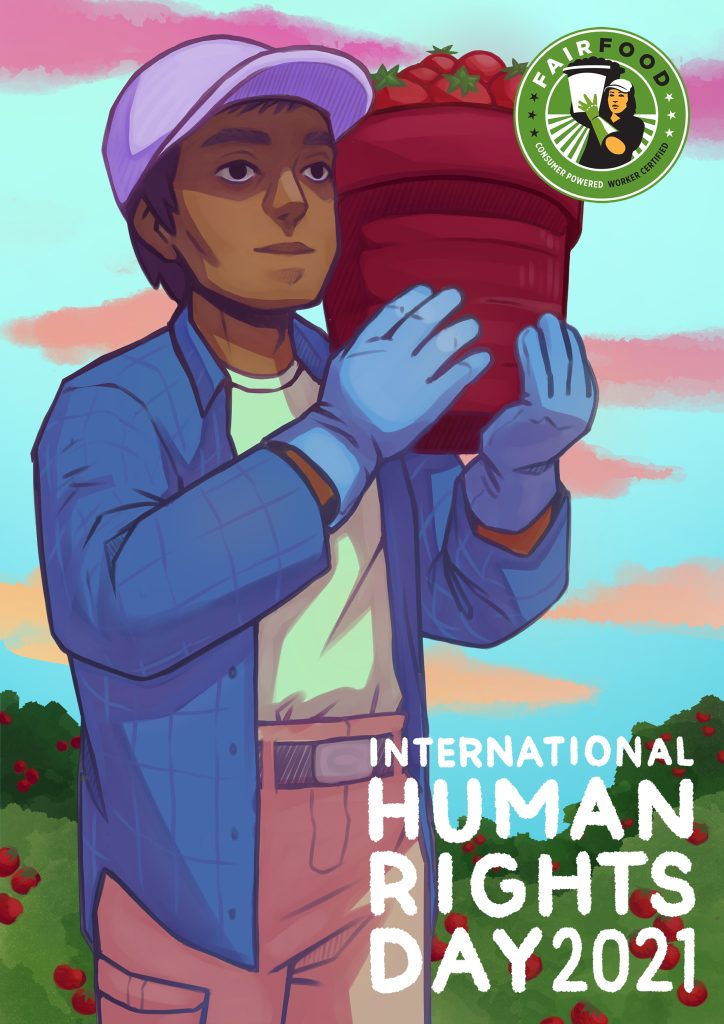Some of the most challenging calls we get on the Fair Food Program hotline come from farmworkers on non-FFP farms. While Program staff always do their best to assist in those cases, the frustrating truth is that we only have the power to fix human rights violations on farms covered by the FFP’s binding legal agreements with Participating Buyers. It’s the brands’ buying power harnessed in those agreements that provides the teeth behind the FFP’s standards — and protects workers who register complaints from retaliation in the process. Without that power, the road to change is far longer, and a lot less certain.
Outside the Fair Food Program, the risks for farmworkers have not changed much since the first cases of slavery uncovered by the CIW in the early 1990s. Just weeks ago, the U.S. Department of Justice announced the indictments of 24 people in a sweeping farmworker human trafficking case that spanned multiple years and involved more than 71,000 farmworkers, including more than 100 workers who were freed during a raid in Georgia in November. Those workers were recruited through the H-2A visa program and were subject to abuses ranging from sexual assault to forced labor, and generating over $200 million in illegal profits for the operation’s ringleaders.
The idea that the Fair Food Program is not needed because “times have changed” is painfully out of touch with the reality for farmworkers in this country today, a reality made even harsher with the rise of the H-2A program in recent years. Extreme abuse is still happening in agriculture, and has been for hundreds of years. Consumers are once again left to wonder whether the food on their holiday plates was harvested through slavery right in their own backyards. And as harsh as conditions are for workers in this country, they are exponentially worse for farmworkers in Mexico, where over half of our produce is grown today and workers are at the mercy of a toxic mix of violence, official corruption, and powerful drug cartels whose influence reaches all the way into the fields.
As these staggering cases come to light, academics and other institutions have contributed new analyses about what it really takes to guarantee workers’ human rights in supply chains. These papers and policy briefs reveal a rapidly growing consensus about how workers’ human rights can be best secured: by empowering workers to be frontline defenders of their own rights, and ensuring real accountability through market consequences, principles central to the Fair Food Program’s model of Worker-driven Social Responsibility. Traditional Corporate Social Responsibility programs and misleading labels simply aren’t up to the task.
Since 2011, the FFP has proven that it is possible not only to create a code of conduct that ensures workers’ basic rights are protected, but also to enforce it. And, to enforce it while also building partnerships with growers that create the conditions for prevention of abuse in the first place.
This December, our annual fundraising campaign holds dual meaning: celebration of ten years of impact, and a sobering remembrance that our work will not be done until we can ensure that every farmworker enjoys the guaranteed, enforceable protections of the Fair Food Program.
Click here to donate $10, $100, or $1,000 to help us reach our $100,000 goal!

